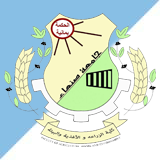
Prof. Amin Abdo Sufyan Al-Hakimi
Personal Information:
Date of birth: December 8, 1960 in Taiz, Yemen.
Professor and vice-Dean Faculty of Agriculture, Sana’a University, Yemen & Head of Yemeni Association for Sustainable Agriculture Development (YASAD).
Current address:
Faculty of Agriculture, Sana’a University
Sana’a, P.O. Box 13768
Summary:
Dr. Amin al-Hakimi, Professor of Plant Breeding, Faculty of Agriculture, Sana’a University, Yemen.
Received first educations in Yemen, obtained certificate in medical analyses then working for ministry of health in Taiz for 3years, then completed secondary school in 1978, then obtained university degrees in Agricultural science from Aleppo University in Syria in 1984. Since 1984, worked for ministry of Agriculture as assistance researcher until 1987. In 1995, I received my PhD in Agronomy and Plant Breeding from Montpellier, France (Ecole Pratique des Hautes Etudes) the Practical School of Higher Studies & INRA-ENSAM, France.
Since 1995, I served as Researcher in the Faculty of Agriculture (FoA), as well as lecturer in the areas of evolution of Agriculture in Yemen, crops production, sustainable rain-fed Agriculture, traditional agriculture knowledge, plant biodiversity, food security, food systems, coffee production and participatory research with beneficiaries.
I was also the founder and the director of Yemeni Genetic Resources Center (YGRC) during the period of 1999-2007 and founder and Head of Yemeni Association for Sustainable Agriculture Development – YASAD (www.YASADNGO.org) since 2007.
I conducted research for development, participate in fundraising and leading for several research & development projects in food security, urban agriculture, local seed system, sustainable agriculture, traditional food system, water use efficiency, climate change in agriculture, utilization of biotechnology for agriculture improvement, monitoring & evaluation expert and national as well as international consultant.
I awarded Fulbright fellowship for two years (2014-2016) as visiting scientist in Texas A&M University, USA and World Coffee Research doing research on coffee improvement, as well as conduct research related to affordable technology can now provide a mechanisms to certify coffee origin and create the basis for a geographic appellation protocol to support a marketing strategy aimed at increasing small farmer incomes (http://worldcoffeeresearch.org/files/annualreport_2014.pd).
Education:
1992-1995, Ph.D. from the Practical School of High Studies (Thèse de Doctorat de l’Ecole Pratique des
Hautes Etudes) and ENSA-INRA, Montpellier – France. Physiological based selection and use of alien wheat species to improve drought tolerance in durum wheat, 220p. Montpellier – France (in French).
1990-1992, Master thesis from the Practical School of High Studies (Diplôme de l’Ecole Pratique des Hautes Etudes), and ENSA-INRA Montpellier- France. Evaluation of genetic variability for drought adaptation traits in wheat,131p. Montpellier – France (in French).
1990, Higher Diploma of University, Languedoc University for Science and Technology (USTL), Montpellier – France. Search of morpho-physiological characters related to water deficit adaptation in wheat species, 64p. (+ Annex). Montpellier – France (in French).
1988-1989, French language courses in Montpellier – France.
1980-1984, B.Sc. in Agriculture Sciences from Aleppo University, Syria.
1978, Secondary School Certificate from AL Kuwait Secondary School, Sana’a,
1976 certificate in medical analyses from central medical analyses in Taiz
Experience:
University teaching in the following topics:
Agriculture in Yemen, Plant breeding, genetic quantitative, physiology of plant under abiotic stress, experimental design & statistical analyses, traditional agriculture, ecology of field crops and pastures, field crop and pasture production, agriculture in arid areas, coffee improvement and production, ethno-flora, ecosystem and agrobiodiversity.
Research skills in the following topics
- Crops improvement to abiotic stress by conventional breeding and selection program, and participatory breeding with farmers and beneficiaries.
- Managing of plant genetic resources (wild, wild relatives & local landraces) including collection, evaluation, characterization and conservation In-situ and Ex-situ.
- Coffee research for adaptation, production, plant morphological characterization, factors affecting coffee quality. https://globalcoffeereview.com/market-reports/view/yemeni-coffees-genetic-advantag
- Traditional Local Knowledge in rainfed agriculture and plant uses including medicinal plants and ethno botany.
- Urban agriculture for food production, water and environment protection.
- Eco-system conservation using integral approach (Eco-Health) for studding the impact of agriculture, local food system, and health of population
- Research related to adaptations measures for eventually climate change in agriculture
- Research in food security and local food system
- Research in medicinal plants, classifications, uses and conservation.
Creation & Direction:
- Creation & Direction of Yemeni Genetic Resources Center, Faculty of Agriculture, Sana’a University (YGRC.) 1998- 2007.
- Creation & Direction Yemeni Association for Sustainable Agriculture Development (2007-2017)
- Supervisions several PhD and master theses in plant breeding, botany and biotechnologies
- Participate in the creation of several research for development networks, farmers NGO’s and research professional federations.
- Fundraising and leading most of these funded projects from national and international funding agencies
- Expertise in monitoring & evaluation of research and developments projects.
Key Qualifications
- Experiances in managing & monitering research and development projects funded by local and international organizations for more then 20 years.
- Field supervisor or coordinator responsible in relevant to research and development projects for mre then 30 years.
- Preperation, reviewing and presentation of field, technical, scintific reports and relevant documents regarding activities in different sectors for more then 20 years.
- Skills in cominications and identification for the possible areas of cooperation with development and funding agencies,
- Building networks with differents sectors gouvernomental and non-gouvernomental, institutions, and research teams .
- Working easly with beneficiaries in urban and rural areas and sharing local knowledge
- Fund raising experiences through this last 15 year from local, regional and international funding agencies (IDRC, SFD, IBGRI, GTZ, RUAF, AUB, UNISCO, IAEA, World Bank, USAID, FAO, and French government).
- Expertises in working with collaborations in the field of evnironement & agriculture researchers developements in national, regional and international levels.
Conferences and Workshops:
| 2013 International Colloquium for Urban Agriculture ICUA-Casa 2013, February 27–March 2, 2013, in Casablanca, Morocco.
2012 The 3rd International Symposium on Medicinal Plants, Their Cultivation and Aspects of uses November 21-23, 2012, Petra – Jordan. 2010 AARINENA RETREAT To consider post-GCARD actions for West Asia and North Africa Region, 22-24 November 2010, ICARDA, Aleppo, Syria. 2010 Global Conferences on Agricultural Research for Development (GCARD 2010), Montpellier, France, 28-31 March 2010. 2008 International EcoHealth Forum 2008 – Merida, Mexico, 5-8 Dec. 2008 COHAB 2 – Second International Conference on Health & Biodiversity, ` 25th – 28th February 2008 in Galway, Ireland 2004 The 7th Arabic Conference for use of Energy Atomic in Science, Sana’a, 4-8 December, 2004. 2003 ‘National Science Conference’, Yemeni Scientific Research Foundation, October, 11-13,2003, Seiyun, Republic of Yemen. 2001 International Symposium on Prospects of Saline Agriculture in the GCC Countries. ICBA Dubai, UAE, 18-20 March. 1999 ‘Irrigation Management and Saline Conditions’, June 21-23, Jordan University of Science and Technology, Irbid, Jordan. 1998 ‘National Science Conference’, Yemeni Scientific Research Foundation, October 11-13, Sana’a, Republic of Yemen. 1997 ‘The Origins of Agriculture and the Domestication of Crop Plants in the Near East’, May 10-14, 1997 Aleppo, Syria. 1997 ‘Third International Triticeae Symposium’, May 4-8, Aleppo, Syria. 1996 ‘Fifth International Wheat Conference’, June 10-14, Ankara, Turkey. 1995 ‘South Europe West Asia North Africa Durum Wheat Network’, ICARDA, March 20-23, Aleppo, Syria. 1995 ‘International Congress on Integrated Study of Drought Tolerance of Higher Plants (INTERDROUGHT)’, August 31-September 2, Montpellier, France. 1994 ‘Second Meeting of Integrated Study of Drought Tolerance of Higher Plants (INTERDROUGHT) Network’, April 13-17, Ischia, Italy. 1994 ‘Genetic Resources Section Meeting of EUCARPIA, Evaluation and Exploitation of Genetic Resources Pre-Breeding’, March 17-21, Clermont-Ferrand, France. 1993 ‘First Meeting of Integrated Study of Drought Tolerance of Higher Plants (INTERDROUGHT) Network’, April 18-22, Siges, Spain.
|
Research and scientific papers:
- Simone Scalabrin1,17, Lucile toniutti2,17*, Gabriele Di Gaspero3, Davide Scaglione1, Gabriele Magris3,4, Michele Vidotto1, Sara pinosio3,5, Federica cattonaro1, federica Magni1, Irena Jurman3, Mario cerutti6, Furio Suggi Liverani7, Luciano navarini7, Lorenzo Del terra7, Gloria pellegrino6, Manuela Rosanna Ruosi6, Nicola Vitulo8, Giorgio Valle9, Alberto pallavicini10, Giorgio Graziosi10, Patricia E. Klein11, Nolan Bentley11, Seth Murray12, William Solano13, Amin Al Hakimi14, Timothy Schilling2, Christophe Montagnon2, Michele Morgante3,4 & Benoit Bertrand15,16. A single polyploidization event at the origin of the tetraploid genome of Coffea arabica is responsible for the extremely low genetic variation in wild and cultivated germplasm.
Scientific RepoRtS (2020) 10:4642 | https://doi.org/10.1038/s41598-020-61216-7
www.nature.com/scientificreports.
- Martha Mundy, Amin Al-Hakimi, and Frédéric Pelat. 2013. Neither Security nor Sovereignty: Agriculture and Food Production in Yemen. Food Security and Food Sovereignty in the Middle East.Working Group Summary Report. Center for International and Regional Studies, Georgetown University School of Foreign Service in Qatar Summary Report No. 6. ISSN 2227-1686. http://www12.georgetown.edu/sfs/qatar/cirs/FoodSecuritySummaryReport.pdf
http://www12.georgetown.edu/sfs/qatar/cirs/ArabicFoodSecurityCIRSSummaryReport6.pdf
- Al- Hakimi A., 2012. Coffee cultivation and production in Yemen, Book published by Participatory foundation for research and dissemination, Sana’a, Yemen. in Arabic (زراعة وانتاج البن في اليمن، كتاب منشور عن الموسسة التشاركية للبحوث والدراسات والنشر، صنعاء اليمن 2012م
- Al-Hakimi A., Ya’ni A., and Pelat, F., 2012. Health Issues in the Mountains of Yemen Healing Practices as Part of Farmers’ Traditional Knowledge. In: Hehmeyer I., and Schönig H. (Eds.), Traditional Medicine in Yemen : Traditional Knowledge and Practice, and Their Value for Today’s World. BRILL Site 2 von 2. 203: 217. http://www.brill.nl/traditional-medicine-yemen
- Batal M., Al-Hakimi A., & Pelat F., 2012. Dietary Diversity in Lebanon and Yemen: A Tale of Two Countries. In: F.Charron (ed.), Eco-health Research in Practice: Innovative Applications of an Ecosystem Approach to Health, Insight and Innovation in International Development 1. http://link.springer.com/chapter/10.1007%2F978-1-4614-0517-7_6#page-1
- Zaharieva M., Ayana N. G., Al Hakimi, Misra S.C., & Monneveux P. 2010. Cultivated emmer wheat (Triticum dicoccon Schrank), an old crop with promising future: a review. NOTES ON NEGLECTED AND UNDERUTILIZED CROPS. Genetic Resources and Crop Evolution: Volume 57, Issue 6 (2010), Page 937. Evol. DOI 10.1007/s10722-010-9572-6. on SpringerLink: http://www.springerlink.com/openurl.asp?genre=article&id=doi:10.1007/s10722-010-9572-6
- Esam A. Hussein, Aziza M. Taj-Eldeen, Abdul-Rahman Al-Dubaie, and Amin Al-Hakimi, 2010. Experimental evaluation of the effect of darkness and illumination on callus of Niegella sativa induced in vitro. Faculty of Science Bulletin, 23 (2010)11-28, Sana’a University ISSN 1684-100x.
- Al Hakimi A., Pelat F., Bashir A. and Said A. 2010. Genetic Improvement of Local Wheat Variety Wasani (Triticum dicoccum Wasani) in the high Mountain area of Taiz. Minia J. of Agric, Res.& Develop. Vol.(30)No.1 pp121-140.
- Al-Hakimi A. 2010. Use of carbon isotope discrimination as a selection tool in wheat breeding for drought tolerance in Yemen. IAEA review TECDOC 2010
- Al-Qubati A.A., Dael M, Al-Hakimi A., Pelat F., Al-Samawi A., Sharaf S., 2010. Yemen traditional food habits and consumption modes in rural mountainous highlands relying on rain-fed agriculture. Yemeni Journal of Agricultural Research & Studies: Issue (22) 103-123. ( in Arabic).
- Al-Hakimi A. 2009, Agro- ecological factors affect chemical compounds and quality of Yemeni Green Coffee. University of Aden Journal of Natural and Applied Sciences. 13 (3): 257-264. (in Arabic) . تاثيرالعوامل الزاعية البيئية على مكونات البن الكيميائية وجودة البن اليمني
- Al-Hakimi A. 2009. Agro-ecological factors affecting physical and cup quality characteristics of Yemeni green coffee. University of Aden Journal of Natural and Applied Sciences. 13 (2): 243-254. (in Arabic) العوامل الزراعية البيئية المؤثرة على الصفات الفيزيائية والحسية المحددة لنوعية وجودة البن اليمني
- Soliman H.M., Al-Hakimi A., Mahyoub M.,Saif A., Al-Shargabi S., & Pelat F., 2008. The traditional methods of integrated pest management: a promising strategy to reduce population density of Coffee Berry Moth Prophantis samaragdina (Butler) (Pyralidae: Lepidoptera) in the field. JKAU: Met., Env.& Arid Land Agric. Sci. Vol. 19 No. 1. pp 47-61. In Arabic الطرق التقليدية في الإدارة المتكاملة للآفات:استراتيجية واعدة في خفض تعداد فراشة ثمار البن في الحقل
- Al Hakimi A, and Allard B. 2005 Collection, Characterization and Evaluation of Yemeni Landraces of Coffee (Cofea arabica),. Zagazig J.Agric. Res., Vol. 32 No.(1), 23-34.
- Al Hakimi A,. Qubati A., Sharaf S., Dael M., Al Samawi A., Yaani A., and Pelat F. 2008. Final Technical Report Project “Health and Dietary Diversity in Yemen – Traditional Yemeni Rural Diets and Local Food Systems: Enhancing Contributions to Health and the Environment, Center of Genetic Resources and IDDEALS, funded by International Development Research Center (IDRC) Grant Number: 103153-001.
- Yaani A., Al Hakimi A,. Qubati A., Sharaf S., Dael M., Al Samawi A., and Pelat F., 2008. Traditional Yemeni Rural Meals: Cook book, Project “Health and Dietary Diversity in Yemen, Yemeni Association for sustainable Agriculture Development, Center of Genetic Resources, and IDDEALS, funded by International Development Research Center (IDRC).(In Arabic)
- Al Hakimi et al, 2006. The National Workshop on the Importance of Genetic Resources and Local Knowledge for the Development of Sustainable Rain-based Agriculture. Implemented by the Genetic Resources Center at the Faculty of Agriculture, Sana’a University and IDDEALS. Funded by Social Fund for Development.
- Al Hakimi, and Pelat F. (eds.) 2003. Indigenous knowledge and sustainable agriculture in Yemen. Les cahiers du CEFAS, Centre Français d’Arcaeologie et de Sciences Sociales de Sana’a, pp. 9-14.
- Al Hakimi, 2004 Collection and Evaluation of Yemeni Crop Landraces for Salt In: Prospects of Saline Agriculture in the Arabian Peninsula, Faisal K Taha, Shoaib Ismail, A.Jaradat (Eds.,) Amherst Scientific Publishers,75-82.
- Al Hakimi A.,2003. The Use of Some Physiological Traits in Breeding for Drought Tolerance, n J.Appl. Sci., 18 (8B), 429-439.
- MERAH O., DELEENS E., AL HAKIMI A., and MONNEVEUX P.,2001. Carbon Isotope Discrimination and Grain Yield Variations among Tetraploid Wheat Species Cultivated under Contrasting Precipitation Regimes. J. Agronomy & Crop Science 186, 129-134
- AL HAKIMI A. 2000. Plant genetic resources in traditional farming systems and there role in agricultural sustainable development in Yemen. In: Proceeding of The first conference about the Ancient Agriculture in Yemen, Sanaa 18-20 June. Al Hakimi A., Bamatraf A., Ba’angood S., Al Hemiary A., Al-Shargabi S., and Pelat F. (eds.), 22-39.
- AL HAKIMI A., 2000. Evaluation of Genetic Variation for Traits Related to Drought Tolerance in Wheat Species. Yemeni Journal of Agricultural Research; 13, 37-49.
- AL HAKIMI A., 1999. An Integrated Approach for Enhancing Drought Tolerance of Wheat in Yemen. Yemeni J. Sci. 1 (1) : 25-35.
- AL HAKIMI A.1999, Response of cultivated plants to salt stress. In: Irrigation Management and saline conditions, N. Al-Abed (Ed.) Jordan University of Science and Technology, 311-320.
- AL HAKIMI A.1998. Primitive Tetraploid wheat species to improve drought resistance in durum wheat (Triticum durum Desf.). In Triticeae III, A. A. Jaradat (Eds.) Science Publisher, Inc. USA, 305-312. Symposium, Aleppo, Syria, 4-8 May 1997.
- AL HAKIMI A., P. MONNEVEUX and M.M. NACHIT.1998. Direct and indirect selection for drought tolerance in alien Tetraploid wheat x durum wheat crosses. In: Wheat: Prospects for Global Improvement, H-J. Braun et al. (Eds.), 353-360.
- AL HAKIMI, A., D. REKIKA, C. BORRIES, and P. MONNEVEUX.1998. The use of Tetraploid wheats to improve drought tolerance in durum. In: SEWANA Durum Research. Network, ICARDA, M.M. Nachit, M. Baum, E. Porceddu, P. Monneveux, and E. Picard (Eds.), 129-138.
- AL HAKIMI A., P. MONNEVEUX, and E. DELEENS.1996. Selection response for carbon isotope discrimination in a T. polonicum x T. durum cross: potential interest for improvement of water use efficiency in durum wheat. Plant Breeding 115-.
- AL HAKIMI A., P. MONNEVEUX, and E. DELEENS.1995. Response to selection for carbon isotope discrimination in a T. polonicum x T. durum Cross: Potential interest for drought tolerance improvement. In: International Congress on Integrated Studies on Drought Tolerance of Higher Plants. Montpellier, France, August 31-2 September 1995, II C.
- AL HAKIMI A., P. MONNEVEUX, and G. GALIBA.1995. Soluble sugars, proline, and relative water content (RWC) as traits for improving drought tolerance and divergent selection for RWC from T. polonicum into T. durum. Journal of Genetics and Breeding 49: 237-244.
- AL HAKIMI A., P. MONNEVEUX, and M.M.. NACHIT.1994. The use of alien Tetraploid wheat species to improve drought tolerance in durum wheat. In: Evaluation and Exploitation of Genetic Resources Pre-Breeding, Proceeding of the Genetic Resources Section Meeting of EUCARPIA, 171-184, Mars 17- 21- 1994 Clermont-Ferrand, France.
- AL HAKIMI A. and P. MONNEVEUX.1993. Variation of morpho-physiological traits of drought tolerance in Tetraploid wheats: In: Biodiversity and Wheat Improvement, A.B. Damania (ed.), John Wiley and Sons, 199-216.
- AL HAKIMI A. and P. MONNEVEUX. Root characteristic and leaf water content in primitive wheat species. In: Genetic Diversity and Plant Breeding for Drought Tolerance in Mediterranean Environments. Monneveux and M. Ben Salem (ed.) Les colloques, n°64. Montpellier- France, Dec. 15-17-1992.
711658330.







